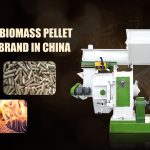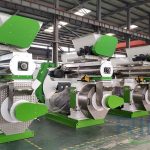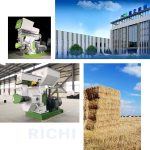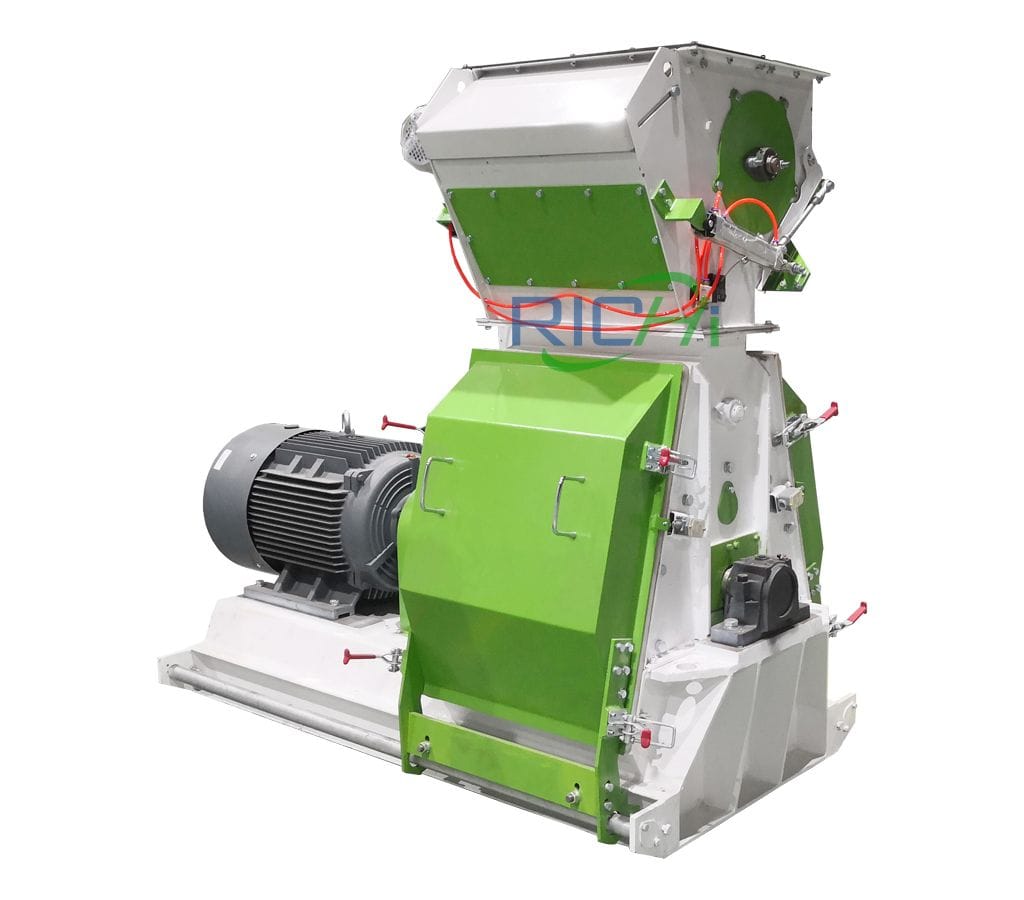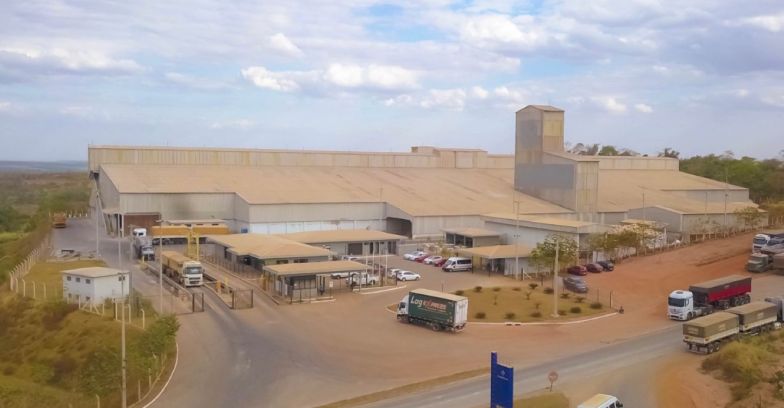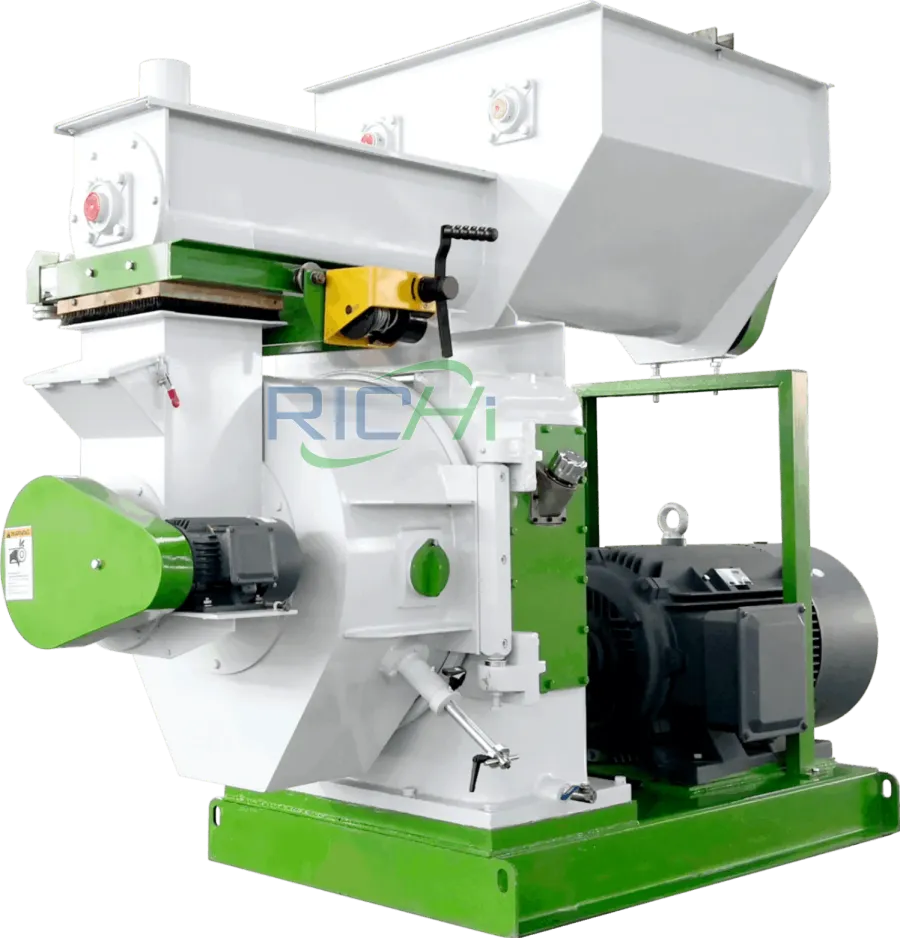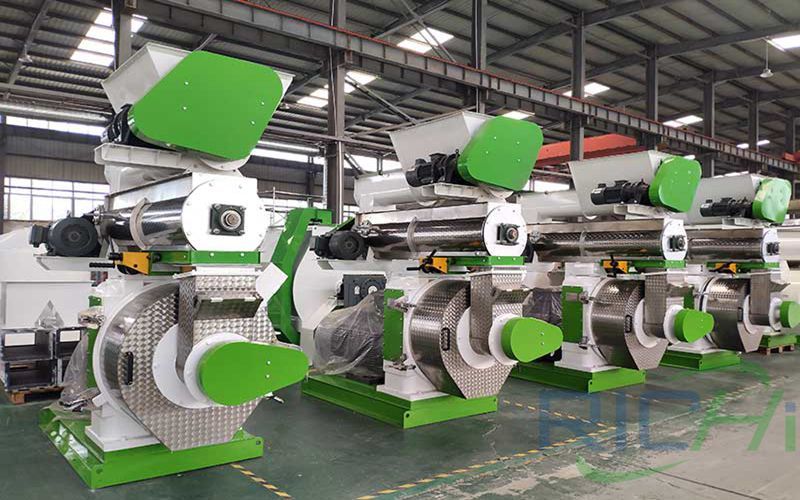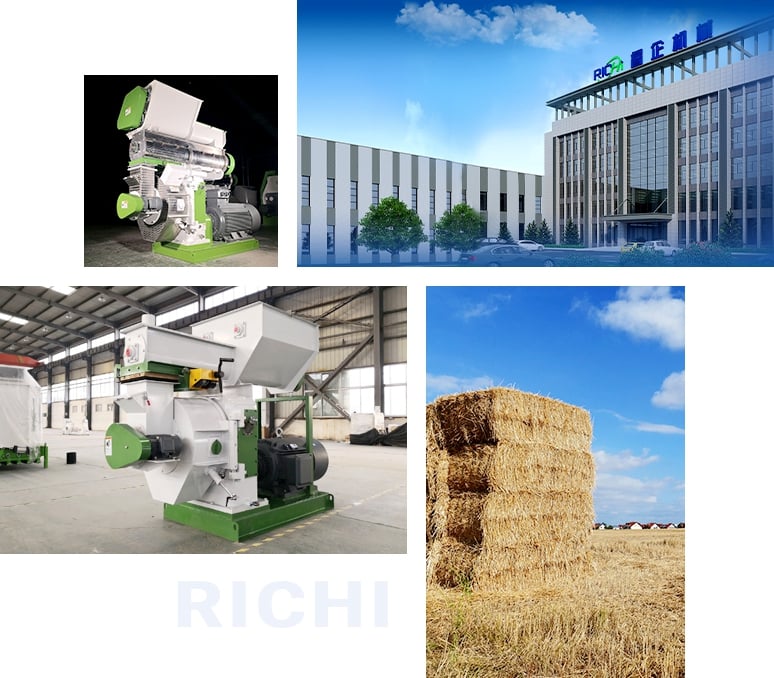Wood pellet hammer mills play a crucial role in the wood pellet production process, offering several significant advantages that contribute to the efficiency, quality, and cost-effectiveness of pellet manufacturing. This article explores the key benefits of using wood pellet hammer mills in the production of wood pellets.
- Consistent Particle Size Reduction
One of the primary advantages of wood pellet hammer mills is their ability to reduce raw materials to a consistent particle size:
- Uniform Grinding: Hammer mills can grind various wood materials, including sawdust, wood chips, and larger wood pieces, into uniform particles typically ranging from 2mm to 5mm in diameter.
- Customizable Output: Most hammer mills, like those offered by GEMCO Energy, come with interchangeable screens that allow operators to adjust the final particle size based on specific pellet production requirements.
This consistency in particle size is crucial for producing high-quality wood pellets, as it ensures:
- Better binding during the pelletizing process
- More uniform density in the final pellets
- Improved combustion efficiency of the pellets
- Versatility in Raw Material Processing
Wood pellet hammer mills demonstrate remarkable versatility in handling different types of biomass materials:
- Multiple Feedstocks: These mills can process a wide range of materials, including hardwoods, softwoods, agricultural residues, and even some types of waste paper.
- Moisture Tolerance: Many hammer mills can handle materials with varying moisture contents, though optimal performance is typically achieved with drier materials.
This versatility allows pellet producers to:
- Adapt to changes in raw material availability
- Explore different feedstock options to optimize costs
- Produce pellets from locally available biomass resources
- High Throughput and Efficiency
Modern wood pellet hammer mills are designed for high-volume production:
- Rapid Processing: Industrial-scale hammer mills can process several tons of material per hour. For example, the MFSB series hammer mills from Feed Pellet Mills offer capacities ranging from 1-1.5 tons/hour to 3.8-4.5 tons/hour.
- Continuous Operation: These mills are built for continuous operation, allowing for 24/7 production in large-scale pellet plants.
The high throughput capabilities ensure:
- Efficient use of production time
- Ability to meet large-scale pellet demand
- Reduced production bottlenecks in the pellet manufacturing process
- Energy Efficiency
While hammer mills require significant power to operate, they are generally energy-efficient when considering their output:
- Optimized Design: Modern hammer mills are designed to maximize grinding efficiency while minimizing energy consumption.
- Adjustable Parameters: Operators can fine-tune mill settings to optimize energy use based on the specific materials being processed.
Energy efficiency in hammer mills contributes to:
- Lower operational costs
- Reduced carbon footprint of the pellet production process
- Improved overall sustainability of pellet manufacturing
- Enhanced Pellet Quality
The use of hammer mills significantly impacts the quality of the final wood pellets:
- Improved Binding: Finely ground particles have more surface area, which improves binding during the pelletizing process.
- Density Control: Consistent particle size allows for better control over pellet density, a key factor in pellet quality.
- Reduced Impurities: The grinding process can help remove some impurities from the raw materials, leading to cleaner pellets.
These quality improvements result in:
- Higher market value for the pellets
- Better performance in pellet stoves and boilers
- Increased customer satisfaction and repeat business
- Integration with Automated Systems
Modern wood pellet hammer mills are designed to integrate seamlessly with automated pellet production systems:
- Automated Feeding: Many mills feature automated feeding systems that ensure a consistent flow of material into the grinding chamber.
- Process Control: Integration with plant-wide control systems allows for real-time monitoring and adjustment of grinding parameters.
- Data Collection: Advanced mills can collect and transmit operational data, facilitating process optimization and predictive maintenance.
This integration capability leads to:
- Improved overall plant efficiency
- Reduced labor requirements
- Better quality control throughout the production process
- Durability and Low Maintenance
Quality wood pellet hammer mills are built for durability and ease of maintenance:
- Robust Construction: Industrial hammer mills are constructed with high-quality materials to withstand the rigors of continuous operation.
- Replaceable Parts: Key components like hammers and screens are designed for easy replacement, minimizing downtime.
- Simple Maintenance: Many models feature designs that allow for quick access to internal components for cleaning and maintenance. (Related post:wood pallet crusher)
These characteristics result in:
- Reduced downtime for repairs and maintenance
- Lower long-term operational costs
- Increased reliability in pellet production
- Flexibility in Production Scale
Wood pellet hammer mills are available in various sizes, suitable for different production scales:
- Small-Scale Production: Compact models like the 420B series from GEMCO Energy are suitable for small-scale or mobile pellet production operations.
- Large-Scale Industrial Use: Larger models like the MFSB series can handle the demands of industrial-scale pellet plants.
This scalability allows:
- Businesses to start small and scale up as demand grows
- Customization of production lines to specific market needs
- Efficient pellet production for both niche markets and large-scale industrial applications
Conclusion
Wood pellet hammer mills offer numerous advantages in the production of wood pellets, from ensuring consistent particle size and versatile material handling to improving pellet quality and production efficiency. Their ability to integrate with automated systems, coupled with their durability and scalability, makes them an indispensable component of modern wood pellet production facilities.
As the demand for wood pellets continues to grow, driven by increasing interest in renewable energy sources, the role of efficient and effective hammer mills in pellet production becomes even more critical. Manufacturers and pellet producers who invest in high-quality hammer mills and optimize their use can expect to see improvements in product quality, operational efficiency, and overall competitiveness in the wood pellet market.
For details please contact: Richi Pelletizer
WhatsApp:86 138 3838 9622
Email:enquiry@richipelletmachine.com
